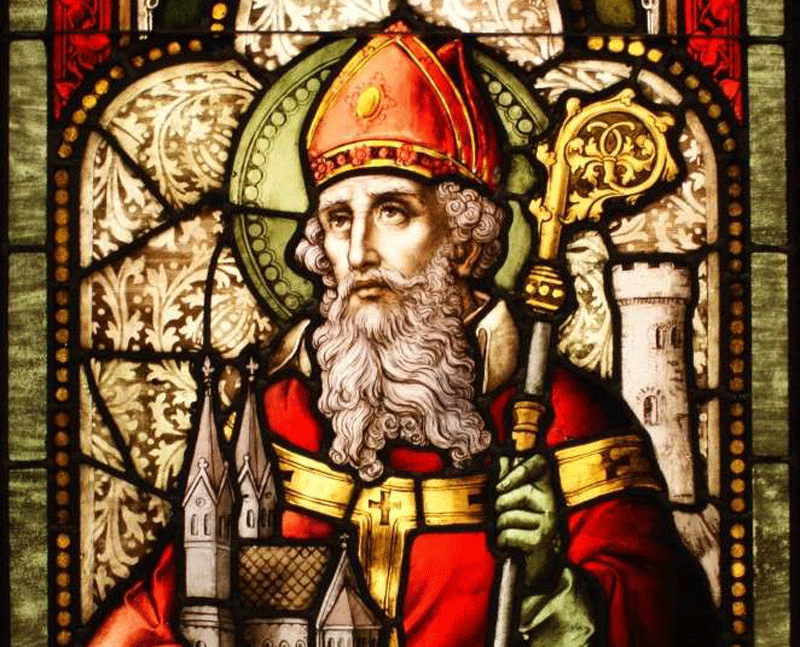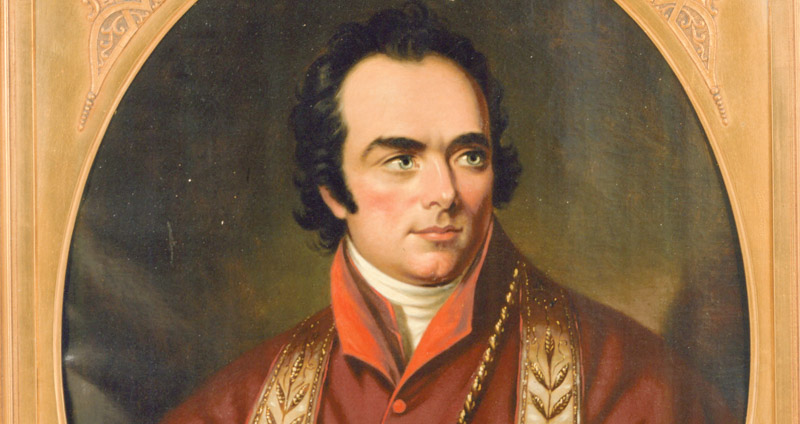DUBLIN, IRELAND—God’s plan for the family may sometimes feel countercultural, but it is nevertheless part of the Church’s “good news” for society and for the world, said Archbishop Eamon Martin of Armagh.
In his keynote for the first full day of the World Meeting of Families in Dublin, the Irish bishop recalled the words of Pope St. John Paul II, who called the family “the domestic church.”
Throughout the week, he said, the World Meeting of Families will “distill for our times this beautiful and prophetic vision of God’s plan for marriage and the family.”
Archbishop Martin’s Aug. 22 speech replaced that of Cardinal Donald Wuerl of Washington, who cancelled his appearance at the family meeting after facing criticism for the way he managed priests who had been accused of sexual abuse during his tenure as bishop of Pittsburgh from 1988 to 2006.
In his speech, Archbishop Martin acknowledged that abuse scandals on several continents have made it difficult to share the “good news of family.”
“Pope Benedict XVI alerted us to the fact that the sins and crimes of sexual abuse in the Church have not only had tragic consequences in the lives of victims and their families, but they have also ‘obscured the light of the Gospel.’ For me, that is particularly true about the Gospel of the family,” he said, recognizing that many people have been left shocked, hurt, and distrustful of the Church’s message.
Families must not give up hope, he said, because as John Paul II once said, “the future of the world and of the Church … passes through the family!”
Reflecting on the role the family plays in society, Archbishop Martin stressed that family life is where children learn values, wisdom, and the difference between right and wrong: “It is in the family that we first are loved and where we first learn how to love … discover who we are, where we have come from, our intergenerational relationships,” and our connection with the Church.
He also quoted the Catechism of the Catholic Church, which calls family “the natural society in which husband and wife are called to give themselves in love and in the gift of life.”
“Authority, stability, and a life of relationships within the family constitute the foundations for freedom, security, and fraternity within society. The family is the community in which, from childhood, one can learn moral values, begin to honor God, and make good use of freedom. Family life is an initiation into life in society,” the Catechism says.
The archbishop encouraged cooperation between the Church and the State in protecting the family, and listed some of the many challenges and pressures faced by families around the world, many of which were discussed during the Synod of Bishops on the family in 2015.
“The overwhelming sense among the bishops at the Synod, I found, was a desire to be with all families,” and especially those who have faced tragedy, breakdowns in their relationships, or who feel excluded for other reasons, he said. We have to find “sincere and truthful ways of welcoming and including [those people] in the life and worshipping community of the Church.”
He encouraged Catholics to help all people to know they are included in the Church. He also expressed gratitude for those families who are doing their best during what are challenging times.
“The wellbeing of the individual person, and of human and Christian society, is intimately linked with the healthy condition of that community produced by marriage and family,” he said.
“For, God Himself is the author of marriage, endowed as it is with various benefits and purposes. All of these have a very decisive bearing on the continuation of the human race, on the personal development and eternal destiny of the individual members of a family, and on the dignity, stability, peace and prosperity of the family itself and of human society as a whole.”
By Hannah Brockhaus/
Photo: K.Sek/Shutterstock



